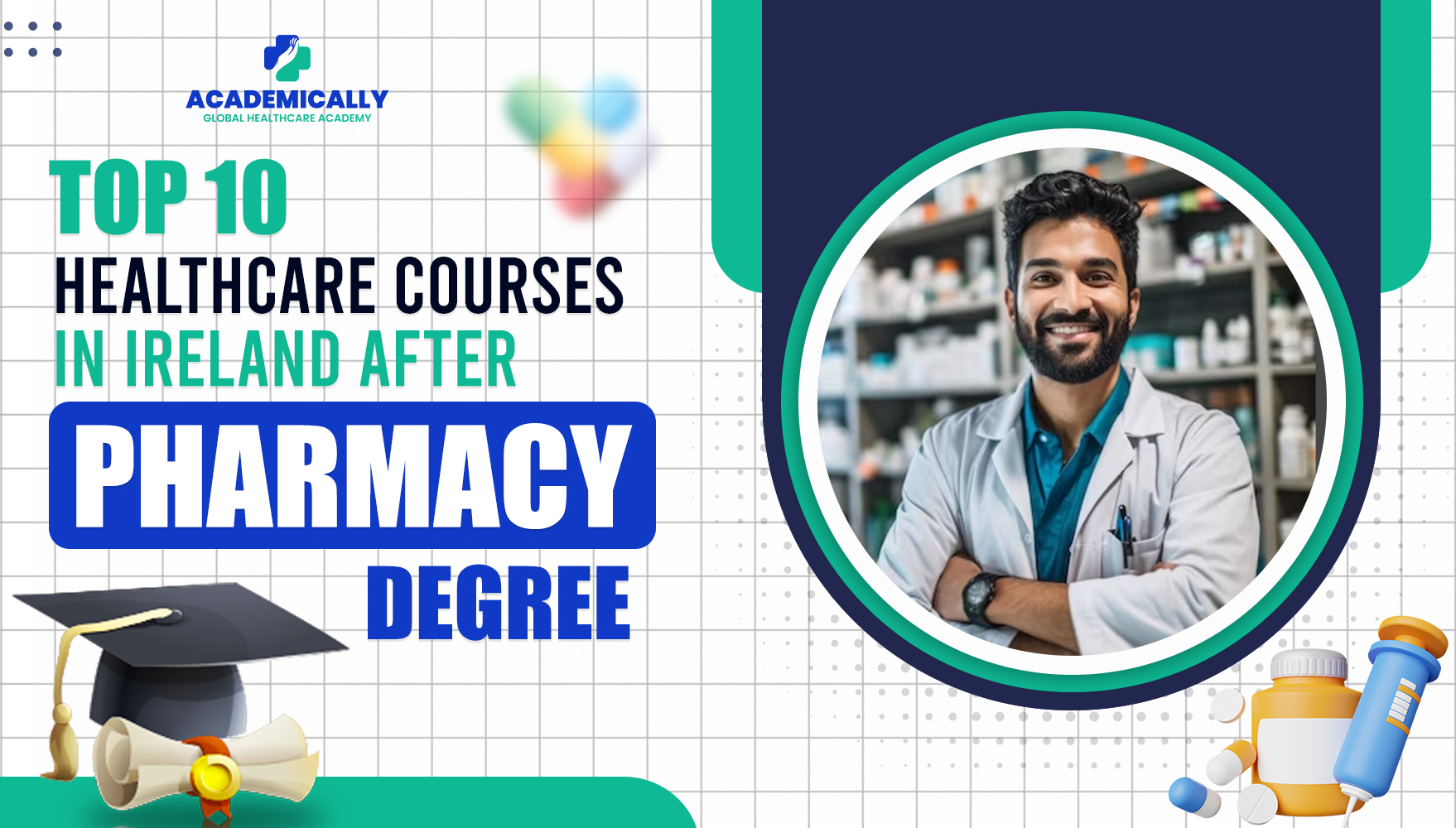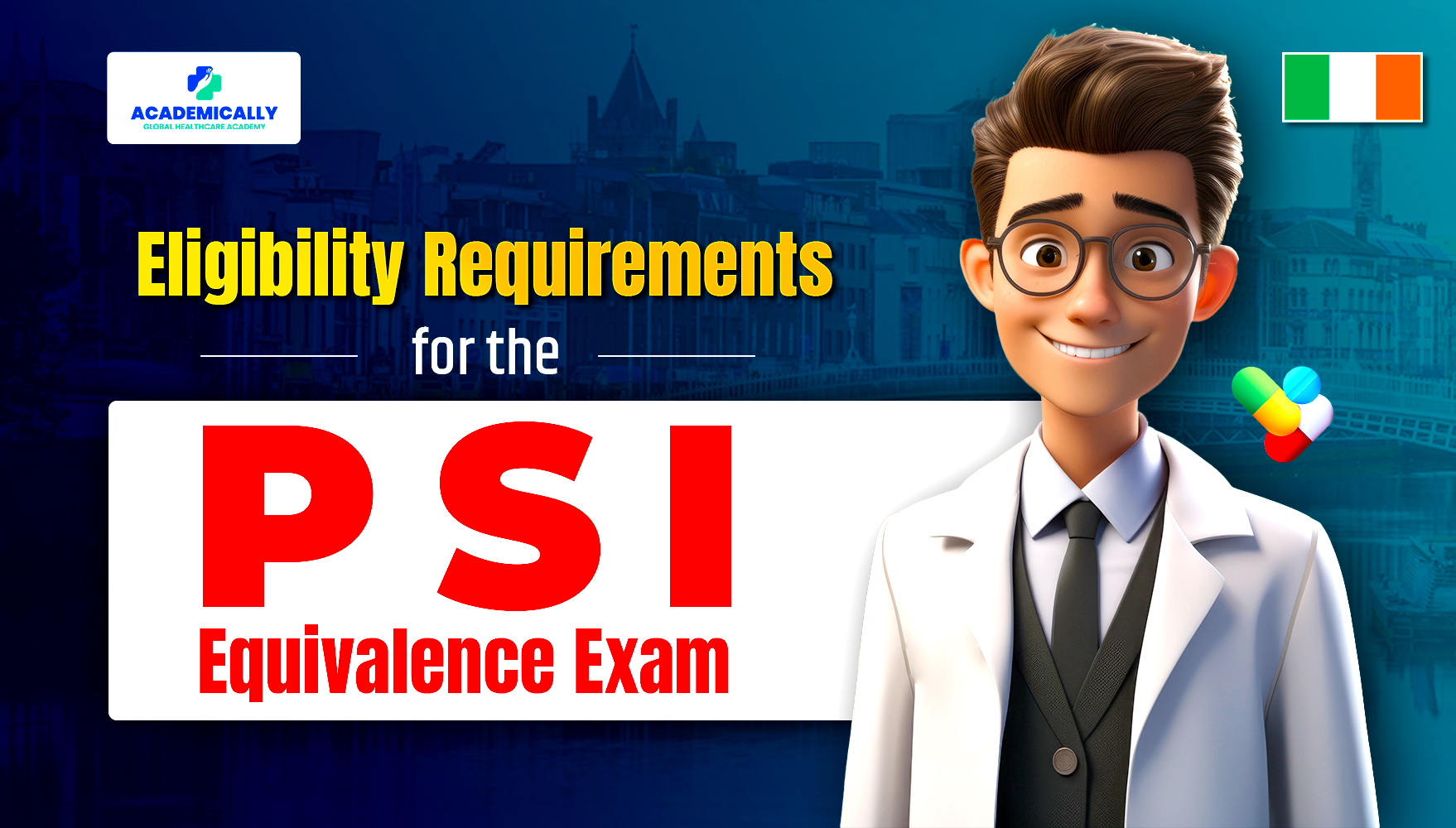Why Ireland?
Ireland stands out as an exceptional destination for furthering your education and career in healthcare for several compelling reasons:
Short duration of courses: Irish universities offer specialised programs that can be completed in just 1 to 1.5 years.
Affordable tuition fees: With tuition fees ranging between €12,000 to €20,000, Ireland offers an excellent return on investment, given the quality of education and subsequent career opportunities.
Extended stay and career opportunities: Upon completing your studies, you are eligible for a 2-year post-study working visa in Ireland. This timeframe allows you to complete the registration process with the Pharmaceutical Society of Ireland (PSI) and start your career as a pharmacist there.
Specialised Courses in Ireland for Pharmacists
Ireland offers various courses within the pharmaceutical and healthcare sectors. Here are the top 10 healthcare courses you can pursue after completing your pharmacy degree:
| Serial No. | Courses | Description | University | Duration | Mode |
| 1. | MSc in Pharmaceutical Business Management
| The course helps students learn how to manage businesses and build leadership skills in the pharmaceutical industry, which has many regulations.
| Griffith College
| 1.5 Years (Full-Time)/2 Years (Part-Time)
| Full-Time/Part-Time
|
| 2. | MSc in Pharmaceutical Business and Technology
| The course focuses on core competencies such as pharmaceutical processes and production, pharmaceutical business introduction & technology transfer, emerging trends, operational excellence (Lean & Six Sigma), regulatory affairs, data analytics, strategic thinking and leadership development. | Griffith College
| 1.5 Years (Full-Time)/2 Years (Part-Time)
| Full-Time/Part-Time
|
| 3. | MSc in Medical Device Technology & Business
| The course covers key areas including medical device classification, design cycle, manufacturing, quality systems, regulations, biocompatibility, operational excellence, lean sigma, emerging trends, measurement and analysis, strategic thinking, and professional development. | Griffith College
| 3 Semesters (1.5 Years)
| Full-Time / Blended Learning
|
| 4. | MSc in Pharmaceutical Sciences
| This course covers the basics and applications of discovering, developing, producing, and analysing drugs and drug products. | Trinity College Dublin
| 1 Year
| Full-Time
|
| 5. | Pharmaceutical Technology
| This course is a continuation of the Higher Certificate in Science GMP & Technology. It aims to educate production, technical, and supervisory/managerial staff in the essential and practical aspects of Good Manufacturing Practice, core science, and production management. | Technological University Dublin
| 1.5 Years
| Part-Time
|
| 6. | MSc in Pharmaceutical Regulatory Affairs
| The program helps current regulatory affairs professionals in the pharmaceutical industry understand all the latest diagnostic and medical device regulations. | South-East Technological University
| 1 Year
| Full-Time
|
| 7. | MSc in Clinical Research
| The course is designed to enhance the efficiency of translating medical discoveries into clinical practice. It targets qualified individuals aspiring to become independent clinical investigators or those seeking leadership roles in clinical research teams. | University of Galway
| 2 Years | Part-Time
|
| 8. | Masters in Public Health
| This program will equip you to investigate, evaluate, and tackle public health challenges, regardless of your professional background. | University College Cork
| 1 Year
| Full -Time
|
| 9. | MSc in Clinical Pharmacy
| This course is tailored for pharmacists working in healthcare settings who seek to improve their clinical pharmacy expertise and practical skills. | University College Cork
| 2 Years
| Part -Time
|
| 10. | MSc in Hospital Pharmacy
| In this course, students will acquire the specialised knowledge and skills required to engage in various facets of hospital pharmacy, such as clinical pharmacy, dispensary and drug distribution, administration and management, aseptic compounding, pharmacoeconomics, and medicines information. | Trinity College Dublin
| 2 Year | Part-Time Hybrid Course
|
About the PSI Equivalence Exam
You can pursue these courses after taking the PSI Equivalence Exam from your home country. Since getting a student visa is easier than the work visa.
The PSI Equivalence Exam assesses the pharmacist’s knowledge and credibility for working in Ireland. It consists of Multiple-Choice Questions (MCQ) and an Objective Structured Clinical Exam (OSCE).
The MCQ exam evaluates theoretical knowledge. It consists of 80 questions and lasts 2.5 hours, plus 15 minutes for reading.
The OSCE (Objective Structured Clinical Examination) evaluates practical skills and clinical competency; you need to undertake two parts:
- On Day 1, you will have a 40-minute written assessment consisting of 2 written OSCE stations, each lasting 20 minutes.
- On Day 2, the assessment involves a verbal component lasting 60 minutes, comprising 6 OSCE stations. Each station includes a 7-minute duration, with 1 minute to read the question and 6 minutes to provide your answer.
Indian PharmD graduates are known for their strong subject knowledge and high success rate in the PSI exams. This is so because of the 6-year PharmD degree which is more preferred in Ireland as their subject matter overrides that of other competitors.
The main challenge lies in the OSCE written and oral exams, but with proper preparation, like focusing on communication and interpersonal skills with OSCE videos or live demos would help in verbal OSCEs. Moreover, the most important part is knowing the subject matter and communicating it correctly rather than stressing over Irish standards of practise.
Final Thoughts
Ireland is a promising land of opportunities for pharmacists. Whether it is higher studies or direct registration, the country has chances for PharmD graduates. Take advantage of the opportunity to enhance your professional journey. Consider Ireland for your career upliftment.
Join Academically’s PSI Equivalence Exam and grab the opportunity before it’s too late. If you want to know more about this exam or more, fill out this form to get one-on-one counselling with our experts!






